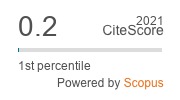Optimal Receiver Filter Design for Spreading Gains in Split Channel BFSK Environment
Keywords:
Split channel binary frequency shift keying, spreading gain, pseudo random noise sequence, Finite impulse response filter, Bit error ratio, Filter design.Abstract
In this paper, we design optimal receiving filters for spreading gains (SG) in Split Channel Binary Frequency Shift Keying (SC-BFSK) systems. For the filter design, the data transmission speed is 1 Mbps, the two tones spacing is 4 MHz, and the channel is an additive white Gaussian noise (AWGN). By changing filter passband bandwidth and transition band, the bit error ratio (BER) performance is observed. Among many combinations of passband and transition band, we select the filter that provides the best BER performance. According to the results, the filter specification is a function of spreading gain. According to the results of the simulation, the optimal receiver filter for SG = 1 is the one with a passband bandwidth of 600 kHz and a transition band of 500 kHz. The optimal receiver filter for SG = 4 is the filter with a passband bandwidth of 200 kHz and a transition band of 200 kHz. The optimal receiver filter for SG = 16 is the filter with a passband bandwidth of 100 kHz and a transition band of 100 kHz. Those results confirm the optimal receiver filter is a function of the SGs, and as the SG is larger, the passband bandwidth and the transition band become smaller.



